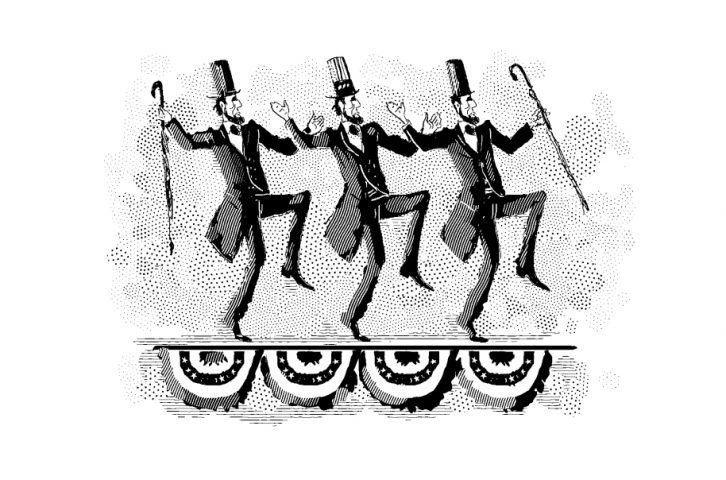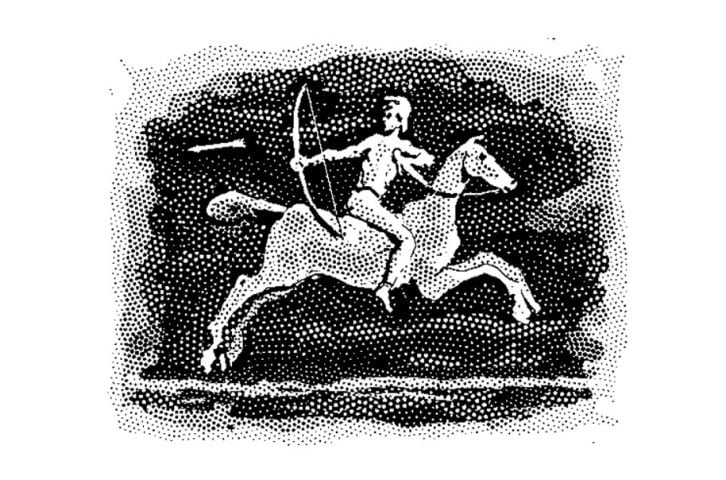Books Reviewed
A review of Land of Lincoln: Adventures in Abe’s America , by Andrew Ferguson
, by Andrew Ferguson
Growing up in Illinois, Andrew Ferguson had a healthy admiration for Springfield’s most famous resident. But it wasn’t until years later that the controversial unveiling of a new statue of Abraham Lincoln in the former Confederate capital of Richmond, Virginia, set him off to travel the country, interviewing the officials, curators, collectors, reenactors, and management workshop executives who populate his new book, in order to see how our 16th president is remembered today.
A senior editor for the Weekly Standard, Ferguson engages Lincoln fans on their own terms—with all their vanity and vulgarity, not to mention their ignorance—yet without denying their attraction, however inchoate, for greatness. But what can you expect when Lincoln has largely been stripped of his noble achievements by the academy and au courant museums? Ferguson is dismayed to find that the Chicago Historical Society has dismantled the beloved dioramas and deathbed scene that had moved him to tears as a boy. The “myth or the icon” had been replaced by “a Lincoln that’s much more human”—and ordinary.
This reduction is on display in the garish new Abraham Lincoln Library and Museum in Springfield, an extravaganza of “emotional engineering” and multi-screen special effects. The genius behind it all is Bob Rogers, a former Walt Disney executive. For Rogers, television and video games have made “today’s audiences…subverbal. They require constant stimulation.” In his view “a great movie” is one where “you still get about seventy percent of what’s going on. Without hearing a word.” Of course, without words, explanations, or speeches, why have any particular devotion to the Lincoln-Douglas debates? Or to the wartime addresses which adorn his memorial? Rogers effuses, “I can give [Lincoln] to you any way you want, cold or hot, jazz or classical. I can give you scandalous Lincoln, conservative Lincoln, liberal Lincoln, racist Lincoln, Lincoln over easy or Lincoln scrambled” (though evidently not hard-boiled).
The visible sign of this mushiness is Rogers’s boast that the Museum does not contain a single actual firearm. Smoking fake cannons stun the audience, but they will see no real weapons—swords, bayonets, rifles—or ammunition. “We made a conscious decision that we did not want to glorify war,” he explains.
Ferguson acknowledges those neo-Confederates who claim that Lincoln was a tyrant. He cites Thomas DiLorenzo’s error-riddled The Real Lincoln (2002) more than any other book, and not simply to knock it. The Lincoln haters, who blame unnecessary wars and big government liberalism on the Great Emancipator, seem to possess sharper contemporary political instincts than liberals who build bland, slouching statues of a merely life-sized Lincoln. Ferguson does not directly confront Lincoln’s current enemies, but instead tries to outflank them by saving Lincoln from his friends
Traveling the Lincoln Trail through Illinois and into Indiana, together with his wise wife and wisecracking kids, Ferguson comes to the iconic log cabin. Here he learns that “[t]he people who rebuilt New Salem eighty years ago wanted their history to inspire and uplift a visitor, to illustrate moral truths about courage and enterprise, and if it didn’t do that they worried that the history they were telling was somehow illegitimate, or a failure.” But science has proven that this cabin, presented as the real one, was constructed of logs from the 1850s, when Lincoln was a grown man. So the park ranger tells him this is a “symbolic cabin.” With the crushed spirit of a true believer, Ferguson moans “‘So the thing is…a fake?’ ‘Not a fake,’ the ranger said. He looked offended. ‘Symbolic.'”
* * *
Although the logs are symbolic, plenty of real Lincoln collectibles are out there. (In fact, there is a strong market even for real Lincoln forgeries.) The prime collector, Louise Taper, declares “I’ve got the stuff”—anything from chamber pots to documents. “I’m in every phase of Lincolnworld,” and she plays it for all it’s worth. But why collect these sacred objects? Ferguson holds a copy of the Gettysburg Address drafted in Lincoln’s own hand and feels “nothing…or…[n]ot as much as I expected to feel. Holding the thing, in fact, wasn’t for me quite as moving as actually reading the words that make up the address, the greatest public utterance in our history.”
Lincoln reenactors (whose annual convention Ferguson covers) may come in many shapes and sizes, but their devotion is undeniable. We see the same piety in the Thai restaurant owner who dedicates a Buddhist shrine, with a fresh meal placed as an offering each day, to Lincoln (carefully omitting pork, in respect for what he takes to be Abraham’s Jewish ancestry). But the power of Lincoln’s appeal comes out most beautifully in the Epilogue, in the story of a Czech concentration camp survivor who made a taxing journey to fulfill his vow to honor the Great Emancipator at his tomb. Ferguson might have noted that the Hungarian free radio station, before its silencing in the ill-fated 1956 rebellion against Communism, spent its last hours broadcasting the Gettysburg Address in seven languages. He also might have covered some of the other popular representations of Lincoln in textbooks, and movies (from Young Mr. Lincoln to Gangs of New York), and the hapless bungle of the U.S. government’s official Abraham Lincoln Bicentennial Commission. But these might have proven distractions from his personal journey of recovering Lincoln.
* * *
The book’s pilgrimage leads Ferguson into moments of doubt, but it is on the steps of the Lincoln Memorial that his understanding blossoms:
I was happy to find a Lincoln that was simpler and more plausible than the ones I’d gotten from scholars, haters, publicists, and buffs…. [T]he bigger, unarguable facts…are plain in front of us. And that’s what the Lincoln Memorial is for: the brute, uncomplicated facts of Lincoln’s public life….
Lincoln saved the Union but it was a particular kind of Union he saved: a union dedicated to a proposition…. If Lincoln had failed, the country would have ceased to exist. The founders would have lost their bet that ordinary people could govern themselves, and the principle they were betting on—that all men are created equal—would have slipped into darkness, and no one can say when it might have been revived.
Ferguson reminds Americans why we have that majestic memorial in the first place. What’s more, by using the various Lincolnophiles’ own words, he allows Americans themselves to present an engaging civics lesson addressing both our flaws and strengths. Land of Lincoln is a practical lesson in the requirements of self-government. It reflects and renews Lincoln’s teaching that, in the end, public opinion is central to the perpetuation of our political institutions.




